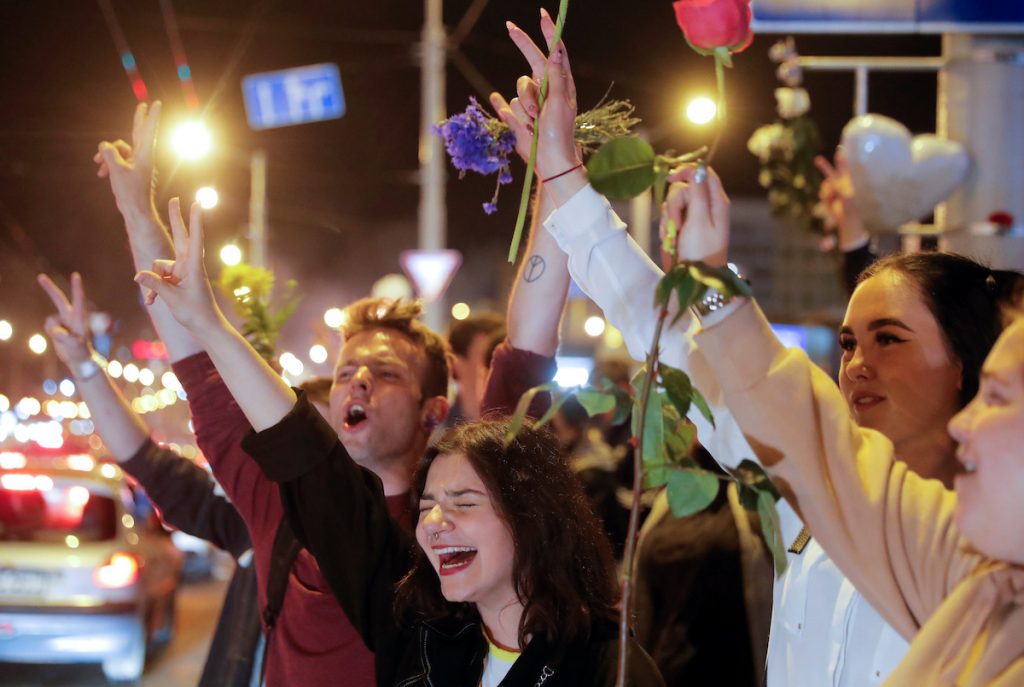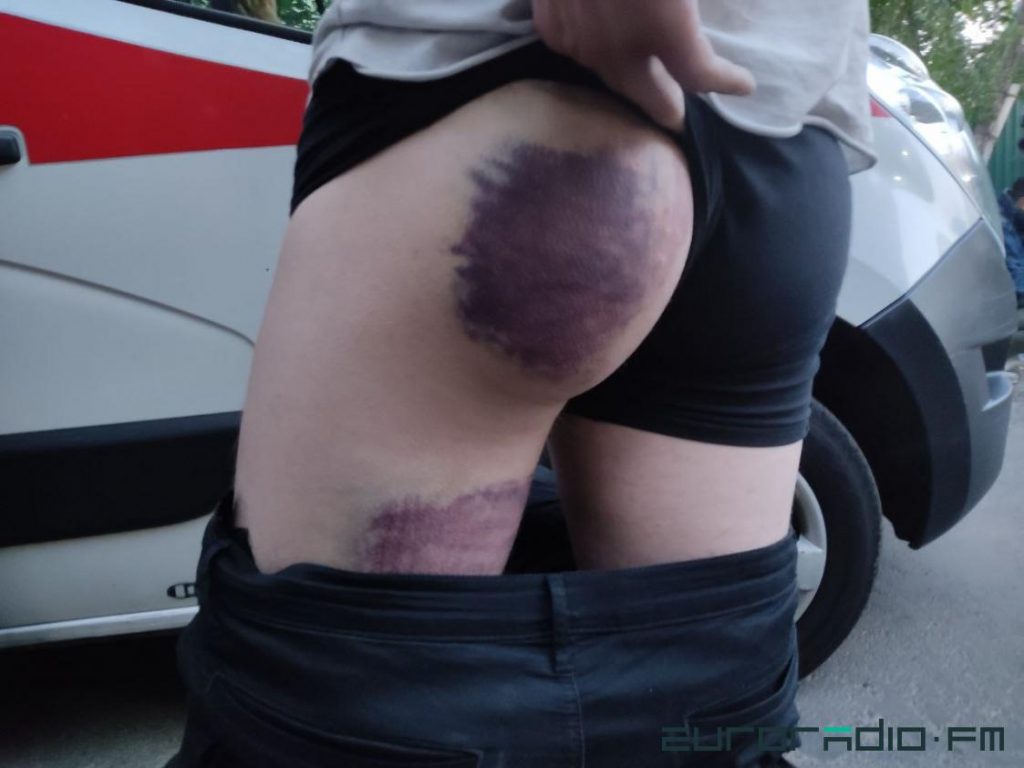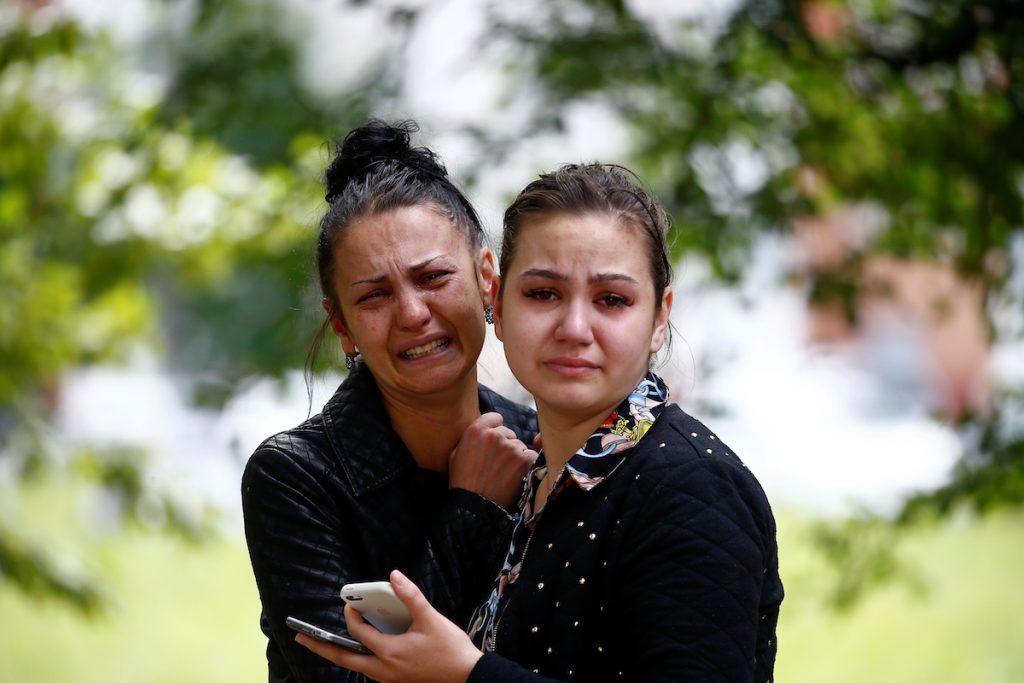Belarus: horrific evidence of torture and beating of protesters, general strike begins
Under the threat of sanctions from the European Union, Belarus began to release people detained for taking part in protests against the falsified presidential elections.
Those who have been released tell horrific stories of the bullying and torture they experienced in prison. Videos and stories below.
Some of the largest businesses in Belarus are joining the general protest strike. Both Tsikhanouskaya and Lukashenko addressed the public, albeit with opposite sentiments and appeals.

The protests in Belarus began on August 9, the day of the presidential elections, which, according to official data, were won by Alexander Lukashenko, who has been leading the country for 26 years.
• New Belarusian meme: what will Lukashenko say when I die?
On August 14, the CEC published the final results of the elections: 80.1% voted for Lukashenko, 10.1% for Tsikhanouskaya. All complaints asking for the election results to be annulled were rejected.
However, tens of thousands of people who took to the streets claim that Sviatlana Tsikhanouskaya was actually elected president, and the election results were falsified. After some time, she was forced to leave the country and move to Lithuania, as the authorities allegedly threatened her children.
In Minsk and other cities, security forces have been beating people in the streets for five days, using batons, rubber bullets and tear gas.
A total of over 7,000 people were detained.
“They were stripped naked, everything was covered in blood, they did not give us food and water, they did not let us go to the bathroom”

Eyewitnesses said the police were grabbing people in the streets and in their yards, with no care for who is watching — teenagers, women, the elderly.
In police vans and prisons, those who were arrested were forced to lie on top of each other. They were beaten with rubber batons, kicked, and stun guns were used on them if they tried to raise their head or speak.
Many, especially women, say they have received threats of rape.
People were kept in the cold for days without food or water. When they asked to go to the bathroom, they were given the response:
“Just go in your pants, you don’t have long to live anyway”.
Nikita Telizhenko, a journalist for the Russian news site Znak.com, was under arrest for three days in Minsk and published a gruesome story about his experience.
He describes people lying on the floor of the detention center in several rows, in pools of blood and excrement.
They were not only not allowed to use the toilet, they were forbidden to change position.
Telizhenko says that he saw seriously injured people with broken limbs and severe bleeding. Not only were they left without medical attention, but the guards beat them even harder if they even groaned.
Telizhenko’s testimonies are confirmed by countless publications on social networks – photos, videos, stories.
The parents and relatives of those arrested stood at the doors of prisons and isolation wards for days, but could not get any information.
If they got indignant about their arrested loved ones, they were also beaten.

Doctors joined the street protests.
They said that the injuries they encountered among those brought to them from prison were unlike anything they had ever seen before — twisted joints, splintered fractures of the limbs, caves in heads.
The death of two protesters has been officially confirmed.
Unconfirmed reports state that 34 people have died.
Growing protests
The strike has expanded even more — the largest businesses, small firms, and public transport have all stopped running
Former military and police officers are filming videos en masse urging the army and police to join the side of the people.
Thousands of women are standing in a chain of solidarity in all cities of Belarus.
The demands of the protesters remain unchanged: the removal of Alexander Lukashenko from power, the recognition of Sviatlana Tsikhanouskaya’s victory, the release of all political prisoners.
Tikhanovskaya and Lukashenko both addressed the public
Sviatlana Tsikhanouskaya recorded a video message to fellow citizens and called for them to continue protesting, emphasizing that it should be peaceful and non-violent.
Alexander Lukashenko denied rumors that he left the country. He held a meeting to demonstrate that he was in the country with officials in the construction industry and said that there are “attempts to sway labor collectives”, which will have a bad effect on the work of large enterprises.
“If you want to strike, strike, if you want to work, work,” Lukashenko said, and noted that he has information that the participants in strikes and workers’ meetings are being paid extra to do so.


















